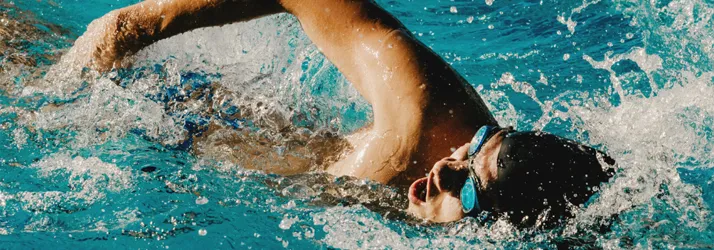Swimmer's Shoulder Survival Guide: Causes, Symptoms, Treatment & Prevention in Rock Hill SC

Swimmer's shoulder in Rock Hill SC, a common ailment among athletes who engage in repetitive overhead motion, can be a real pain - quite literally. While the allure of gliding through water often overshadows the potential risks, understanding the intricacies of this condition is crucial for both prevention and management. Let's dive into the depths of swimmer's shoulder to uncover its causes, symptoms, and effective treatment strategies.
Understanding Swimmer's Shoulder
Swimmer's shoulder, also known as shoulder impingement syndrome, is a multifactorial condition characterized by pain and dysfunction in the shoulder joint. It primarily affects swimmers due to the repetitive overhead motion involved in strokes like freestyle, butterfly, and backstroke. The constant rotation and abduction of the shoulder during swimming can lead to inflammation, irritation, and eventual injury of the surrounding tissues.
Causes
- Poor Technique: Incorrect swimming techniques, such as improper arm positioning or excessive shoulder rotation, can contribute to increased stress on the shoulder joint.
- Muscle Imbalances: Weakness or imbalance in the muscles surrounding the shoulder, particularly the rotator cuff muscles, can alter the mechanics of the joint and predispose it to injury.
- Anatomical Factors: Individuals with certain anatomical variations, such as a narrow shoulder joint or abnormal bone structure, may be more susceptible to developing swimmer's shoulder.
Symptoms
The symptoms of swimmer's shoulder can vary in intensity and may include:
- Pain: Dull, aching pain in the shoulder, especially during and after swimming sessions.
- Decreased Range of Motion: Difficulty raising the arm or reaching overhead due to pain and stiffness.
- Weakness: Weakness in the shoulder muscles, particularly when performing overhead movements or lifting objects.
- Swelling and Tenderness: Swelling, inflammation, and tenderness around the shoulder joint, indicating tissue irritation.
Treatment
- Rest and Modification of Activity: Giving the shoulder adequate rest and avoiding activities that exacerbate pain can facilitate healing. Modifying swimming techniques or temporarily switching to less strenuous strokes can also alleviate strain on the shoulder.
- Chiropractic Care: A structured therapy program focusing on strengthening the shoulder muscles, improving flexibility, and correcting biomechanical imbalances can be instrumental in rehabilitating swimmer's shoulder.
- Modalities: Therapeutic modalities such laser, shockwave, game ready ice compression and electrical stimulation can provide symptomatic relief and promote tissue healing.
Prevention
Prevention is key in mitigating the risk of swimmer's shoulder. Here are some preventive measures to consider:
- Proper Technique: Ensure proper swimming technique and stroke mechanics through coaching and regular feedback.
- Gradual Progression: Gradually increase training intensity and duration to allow the shoulder muscles to adapt and strengthen over time.
- Cross-Training: Incorporate cross-training activities that target different muscle groups and reduce the repetitive strain on the shoulders.
- Warm-up and Stretching: Prioritize warm-up exercises and dynamic stretching routines to prepare the shoulder muscles for the demands of swimming.
- Strength Training: Implement a comprehensive strength training program focusing on shoulder stability, rotator cuff strength, and overall muscle balance.
- Listen to Your Body: Pay attention to early signs of discomfort or pain in the shoulders and take appropriate rest or modification of activity to prevent progression to injury.
Conclusion
Swimmer's shoulder can pose a significant challenge for athletes striving for peak performance in the pool. By understanding its causes, recognizing its symptoms, and implementing effective treatment and prevention strategies, swimmers can navigate the waters safely and enjoyably. Whether you're a competitive swimmer or a recreational enthusiast, prioritizing shoulder health is essential for longevity and continued enjoyment of the sport. So, dive in with knowledge, train smart, and keep swimming strong!
OFFICE HOURS
Monday
7:45am - 6:00pm
Tuesday
7:45am - 6:00pm
Wednesday
7:45am - 6:00pm
Thursday
7:45am - 6:00pm
Friday
7:30am - 5:00pm
Saturday
8:00am - 1:00pm
Sunday
Closed
Celanese Chiropractic Health & Performance
1924 Mt Gallant Rd
Rock Hill, SC 29732
